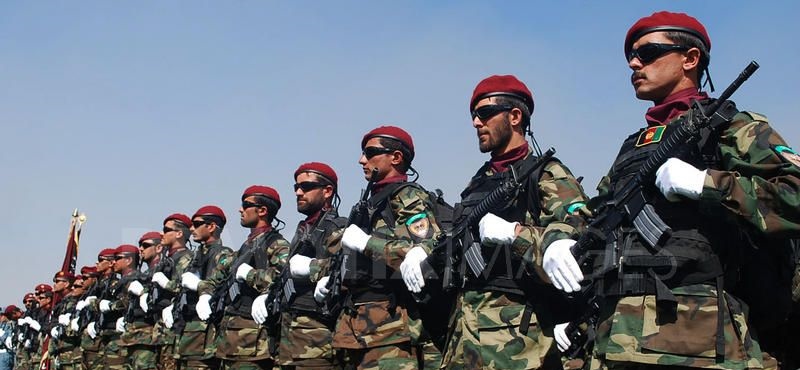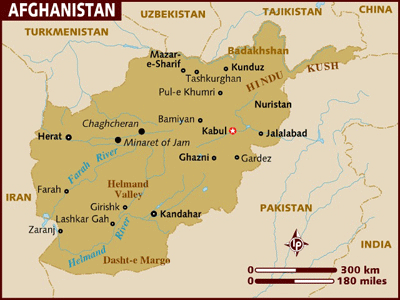Afghanistan declares ceasefire with Taliban
June 8, 2018 | Expert Insights

Afghanistan President Ashraf Ghani has declared a temporary unilateral ceasefire with the Taliban for Ramadan. This move signals that Kabul is willing to make concessions to end the 17-year war.
Background
Landlocked and mountainous, Afghanistan is one of the most unstable nations in the world. Much of its economy and infrastructure are in ruins and the nation relies heavily on foreign aid. The region is home to multiple terror groups such as ISIS, Taliban, al Qaeda, and Daesh.
This chronic instability has forced many citizens to become refugees. The region is plagued by multiple terror attacks. In 2016, 4,561 people were killed by terrorists in Afghanistan. There were 1,340 terrorist attacks that year alone.
The number of terror attacks have continued to rise in recent years. Vanda Felbab-Brown, an expert in the field, testified to the Subcommittee on Terrorism, Non-proliferation, and Trade of the House Foreign Affairs Committee, that there has been a resurgence of terrorism in the country. Nicholas Haysom, the UN special envoy in Afghanistan noted in March 2016 that if Afghanistan merely survived 2016, the UN would consider its mission a success. In addition, war continues to rage on in the region. The US-led invasion, which took place in 2001, has still not ended, making it the longest war waged in American history.
Kabul is regularly shaken by suicide bomb attacks. Within the first half of 2017, reports have suggested that terror attacks had resulted in the deaths of at least 1,662 people. In January 2018, an ambulance packed with explosives killed at least 100 people.

Analysis
Afghanistan’s president has declared that forces would cease operations against the Taliban. Ashraf Ghani said that Afghani forces would stop offensive actions against the Taliban from June 12 until June 20, coinciding with the end of the Muslim month of Ramadan. US forces quickly announced they would also abide by the ceasefire, although both nations will continue to target ISIS and al-Qaeda.
“This ceasefire is an opportunity for the Taliban to introspect that their violent campaign is not winning them hearts and minds but further alienating the Afghan people from their cause,” said Mr. Ghani.
“Afghan national defense and security forces will only stop offensive maneuvers against armed Afghan Taliban and will continue to target Daesh [Islamic State] and other foreign-backed terrorist organizations and their affiliates.”
Mike Pompeo, US Secretary of State, said in a statement: “In support of the Afghan government’s initiative, NATO’s Resolute Support Mission and US forces in Afghanistan will respect the ceasefire, as it applies to the Taliban. It does not apply to ISIS and al-Qaeda, nor does it prohibit operations to defend Afghan and coalition forces from attack.” No immediate response was made by the Taliban.
In February, Mr Ghani offered the Taliban official recognition and said he would enter peace talks without preconditions. However, this is the first time he has announced that government forces would unilaterally lay down weapons. The move came after a group of clerics declared a fatwa - a ruling on a point of Islamic law given by a recognized authority - against suicide bombings, following attacks in Kabul on June 4.
The latest report by the US Special Inspector General for Afghanistan Reconstruction said that just 56% of the country was under the control of Kabul.
Meanwhile, US President Donald Trump has recommitted to the conflict, pledging thousands of extra troops to bring the war to an end.
Counterpoint
The announcement is "an opportunity to reduce levels of violence and create space for talks to begin," according to British Foreign Secretary Boris Johnson. However, there are looming concerns that the ceasefire could give the Taliban a chance to regroup. "From a military prospect, it is not a good move," stated a former Afghan Army General Atiqullah Amarkhel.
The Western-backed government in Kabul has been struggling to fend off the Taliban and other militant groups since the withdrawal of most NATO troops in 2014. Hundreds of soldiers and police officers have been killed since the Taliban launched their spring offensive in April this year in a bid to control large regions of the country. The Afghan national security services have been pinned back by the Taliban across the country in recent months.
Assessment
Our assessment is that Ashraf Ghani’s decision marks a significant shift in the political landscape in Afghanistan and presents an opportunity to end a war that has been waged for over a decade and a half. We believe that the Afghan government’s offer of a temporary ceasefire underscores its commitment to peace as both a national and religious responsibility. It will allow the Afghan people to celebrate the Eid al-Fitr holiday without fear of violence.
Read more: Afghanistan: Khost Mosque Blast
Taliban’s legitimacy in Afghanistan








Comments